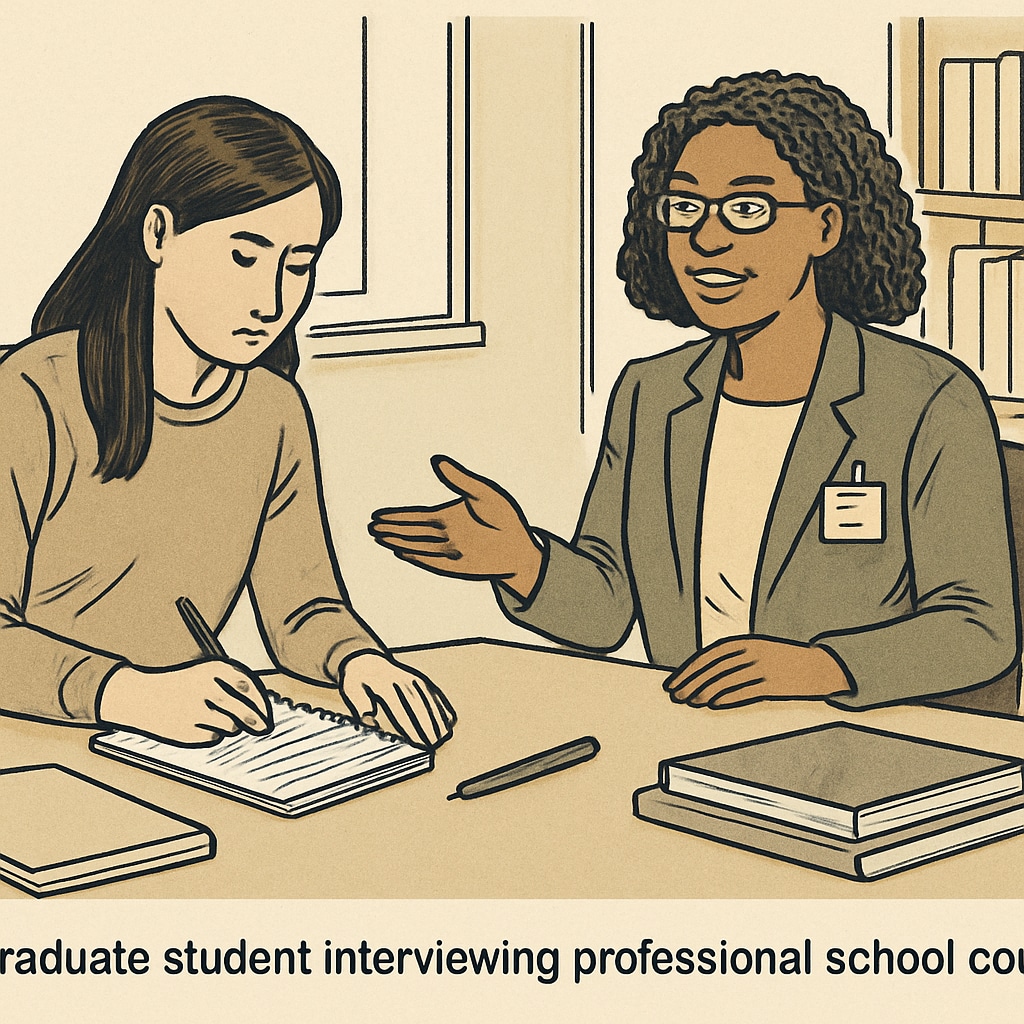Interviews with school counselors have become an essential part of graduate assignments, offering students a unique opportunity to bridge the gap between theoretical knowledge and practical application. By engaging directly with professionals in the field, graduate students gain a clearer understanding of the evolving responsibilities of school counselors and the challenges they face in today’s dynamic K-12 education environment. This article explores the critical role such interviews play in academic research, highlights the current landscape of school counseling, and suggests strategies for fostering collaboration between researchers and educators.
The Evolving Role of School Counselors in K-12 Education
School counselors today wear many hats, navigating a complex array of responsibilities that extend far beyond traditional academic advising. They address students’ mental health needs, social-emotional development, and career planning, often serving as the first line of support in critical situations. This multifaceted role has evolved significantly over the past decade, driven by changes in educational policies, societal expectations, and student needs.
For example, counselors are now tasked with integrating social-emotional learning (SEL) into school curricula, a responsibility that requires both specialized training and a deep understanding of diverse student populations. Additionally, they must collaborate with teachers, parents, and external organizations to create a holistic support system for students. These responsibilities highlight the importance of understanding how theoretical frameworks, such as Maslow’s hierarchy of needs, are applied in real-world contexts.

Why Graduate Students Should Engage with School Counselors
For graduate students pursuing degrees in education or counseling, engaging with school counselors provides invaluable insights that cannot be gleaned from textbooks alone. These interviews allow students to observe how theoretical concepts are implemented in practice and to better understand the day-to-day challenges faced by counselors. Moreover, such interactions often reveal the nuances of school culture and the unique needs of specific student populations.
Graduate assignments that involve interviewing school counselors also encourage students to develop critical soft skills, such as active listening, empathy, and professional communication. These skills are crucial for future educators and counselors, as they enhance the ability to build trust and rapport with students and colleagues alike.

Strategies for Strengthening Collaboration Between Academia and Practice
To maximize the benefits of school counselor interviews, it is essential to foster stronger collaboration between academic researchers and educational practitioners. Here are some strategies to consider:
- Facilitating Structured Interviews: Graduate programs can provide students with structured interview guides that align with their coursework, ensuring that the conversations are both focused and productive.
- Encouraging Long-Term Partnerships: Universities can establish partnerships with local schools, creating opportunities for ongoing collaboration and mutual learning.
- Providing Professional Development Opportunities: Schools can invite graduate students to participate in workshops or training sessions, offering them a firsthand look at the challenges and innovations in school counseling.
- Promoting Knowledge Sharing: Researchers can share their findings with practitioners in accessible formats, fostering a two-way exchange of ideas and insights.
As a result, graduate students and school counselors can work together to address pressing issues in education, such as mental health crises, academic achievement gaps, and the integration of technology in counseling practices.
Readability guidance: Short paragraphs, clear transitions, and lists are used to enhance readability. Overly complex sentences and excessive jargon have been avoided to ensure accessibility for a broad audience.


